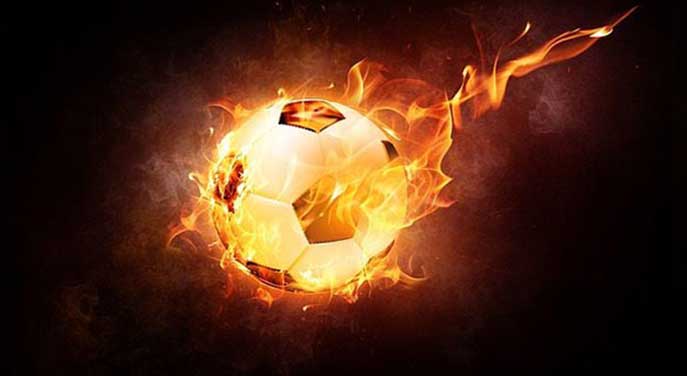Pelé became one of the sport’s greatest personalities
 Pelé.
Pelé.
It’s a name that’s instantly recognizable. A name that evokes a multitude of emotions and memories. And a name that truly doesn’t require a great deal of explanation.
The Brazilian football legend, whose full name was Edson Arantes do Nascimento, passed away on Dec. 29, 2022. São Paulo’s Albert Einstein Israelite Hospital announced the cause of death as “multiple organ failures resulting from the progression of colon cancer associated with his previous medical condition.”
Pelé was admitted to the hospital on Nov. 29, 2022, and was moved into end-of-life care on Dec. 3. He managed to have a few good days, and responded to tweets from French football star Kylian Mbappé and Brazilian sports announcer Galvão Bueno.
 |
| More in Sports |
| Pelé, the World Cup and the launching of a legend
|
| Why don’t Canadian broadcasters love the beautiful game?
|
| Call for equal pay for women for equal play falls flat
|
Alas, his health declined around Christmas. Several heart-wrenching photos and videos were released, with his loving family by his side. He fought valiantly to the end, just like he had on the pitch countless times during his incredible career.
Pelé’s legacy in football (or soccer) was unparalleled. No one denies the brilliance of great stars like Lionel Messi, Diego Maradona, Cristiano Ronaldo, Karim Benzema and others. At the same time, no one has ever played the beautiful game quite like him.
He was the greatest footballer I ever saw.
Pelé was born on Oct. 23, 1940. His first name was a tribute to U.S. inventor Thomas Edison, while his nickname came from his mispronunciation of Vasco da Gama goalkeeper Bilé, his childhood hero. He lived in poverty in Bauru, a municipality in São Paulo. Extra money was earned by working as a servant in several local tea shops.
Fortunately, he had a great gift in football. His father, João Ramos do Nascimento, or Dondinho, had played for Brazilian teams like Fluminense FC and Bauru Atlético Clube. He identified his son’s talent at an early age and served as his trainer and mentor.
Pelé would win two state youth championships with the Bauru Atlético Clube juniors and play on amateur teams. He also won championships with Radium, a futsal (indoor football) team. As he explained in a May 24, 2006 speech, this latter experience aided him because it was “quicker than football on grass” and “learning the game probably helped me think on my feet better.” It was also the first time the 14-year-old played with adults, and ended up as the league’s top scorer. “That gave me a lot of confidence,” he said. “I knew then not to be afraid of whatever might come.”
He wasn’t.
Waldemar de Brito, his junior coach at Bauru, accompanied him to his first tryout with a professional club, Santos FC, in 1956. Brito confidently told the directors the 15-year-old prodigy would be “the greatest football player in the world.” The club’s legendary manager, Lula, agreed – and he was signed to a contract.
Pelé scored in his first game, a 7-1 win against Corinthinhas on Sept. 7, 1956. He would end up with 643 goals for Santos in 659 games, a record that still stands today. He led them to six Série A championships, the Campeonato Paulista on 10 occasions, as well as the Torneio Rio–São Paulo, Copa Libertadores, Intercontinental Cup and Intercontinental Supercup.
He had reached god-like status in his home country and would achieve international fame by helping Brazil win three World Cups (1958, 1962 and 1970). His ball handling was masterful. His speed was astonishing. His ability to pass to teammates in complex situations was uncanny. He created many opportunities despite being shadowed by multiple defenders. He scored in every achievable fashion against his opposition, from the deftest of angles to several memorable bicycle kicks.
Although Pelé retired from football competition in Brazil in 1974, he returned to play three seasons for the New York Cosmos of the North American Soccer League. He led them to victory in the 1977 Soccer Bowl, the crowning achievement of his career. He had helped increase the game’s popularity on this continent and encouraged international footballers like Johan Cruyff, Eusébio and George Best to play in the league.
This is where I first witnessed Pelé’s genius. Even at age seven, I was immediately mesmerized by his playing skills and personality in front of the TV cameras. I have several memories of his final game, an exhibition match between Santos and Cosmos on Oct. 1, 1977. The NASL side won, and he scored his final goal for Cosmos on a 30-yard kick to the roars of the crowd at Giants Stadium.
Pelé would become one of the sport’s greatest personalities. He served as a UNESCO Goodwill Ambassador and Brazil’s Minister of Sports between 1995 and 1998. He published several autobiographies, participated in several documentaries about his career, assisted Rio de Janeiro’s winning bid for the 2016 Summer Olympics, and appeared in the 1981 film Escape to Victory.
Moreover, he would be universally recognized as the footballer who has been the most emulated, admired and respected in the game’s history. Nicknamed O Rei (“The King”) after the 1958 World Cup, he wore this honour with dignity, humility and pride.
Rest in peace, Pelé. Obrigada, e descanse bem.
Michael Taube, a Troy Media syndicated columnist and Washington Times contributor, was a speechwriter for former prime minister Stephen Harper. He holds a master’s degree in comparative politics from the London School of Economics.
For interview requests, click here.
The opinions expressed by our columnists and contributors are theirs alone and do not inherently or expressly reflect the views of our publication.
© Troy Media
Troy Media is an editorial content provider to media outlets and its own hosted community news outlets across Canada.

